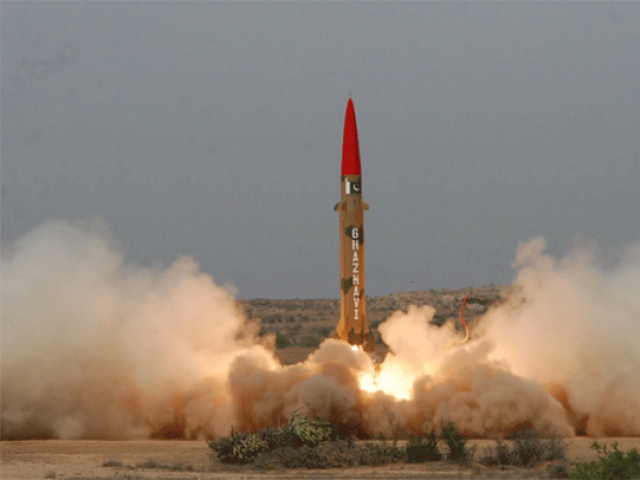Join the Club
Pakistan has now formally applied to join the Nuclear Suppliers Group

Pakistan ambassador in Vienna submits a formal application to chairman Nuclear Suppliers Group. PHOTO: ISPR

Despite not being a signatory of the NPT, India has support from the US, the UK, Russia and France for NSG membership. Pakistan probably has the support of China in its application and China has the power of veto over India’s proposed membership, which it may or may not exercise. The NSG is clear in its mandate — every member must be a signatory of the NPT and with Pakistan and India clearly not, a host of knotty questions arise. The group was created in 1974 as a direct response to India’s first nuclear test, and today Washington is supporting that country in its bid for an NSG slot after negotiating a set of discriminatory exemptions enabling the signing of a civil nuclear deal, not a facility which is on the table in terms of US-Pakistan relations. Pakistan in its application to the NSG argues that its security procedures are robust, at least as robust as India’s which is ranked 23rd out of 25 countries in terms of quality of nuclear security practices, followed by Iran and North Korea. The market for nuclear materials and products is considerable and highly profitable. Against this, Pakistan still carries the burden of a global trust deficit in matters of nuclear non-proliferation, which is not going to fade any time soon. But the dynamics of geopolitics have shifted since the NSG was formed in 1974. Alliances and balances of power as well as regional and global interests have changed. At the very least an interesting struggle is in development.
Published in The Express Tribune, May 23rd, 2016.
Like Opinion & Editorial on Facebook, follow @ETOpEd on Twitter to receive all updates on all our daily pieces.














COMMENTS
Comments are moderated and generally will be posted if they are on-topic and not abusive.
For more information, please see our Comments FAQ